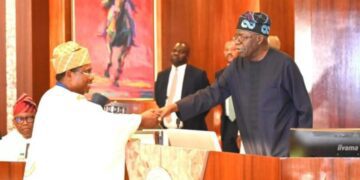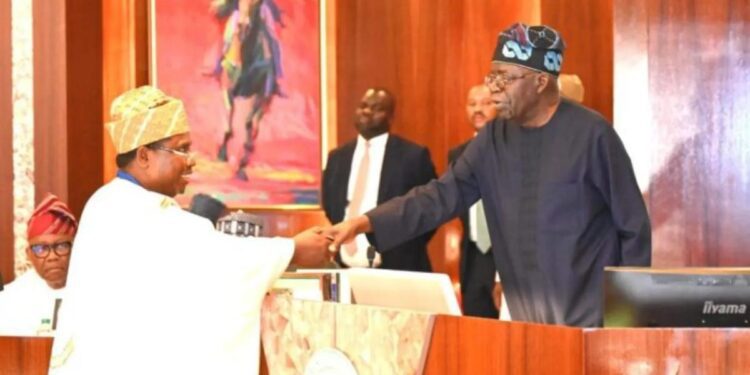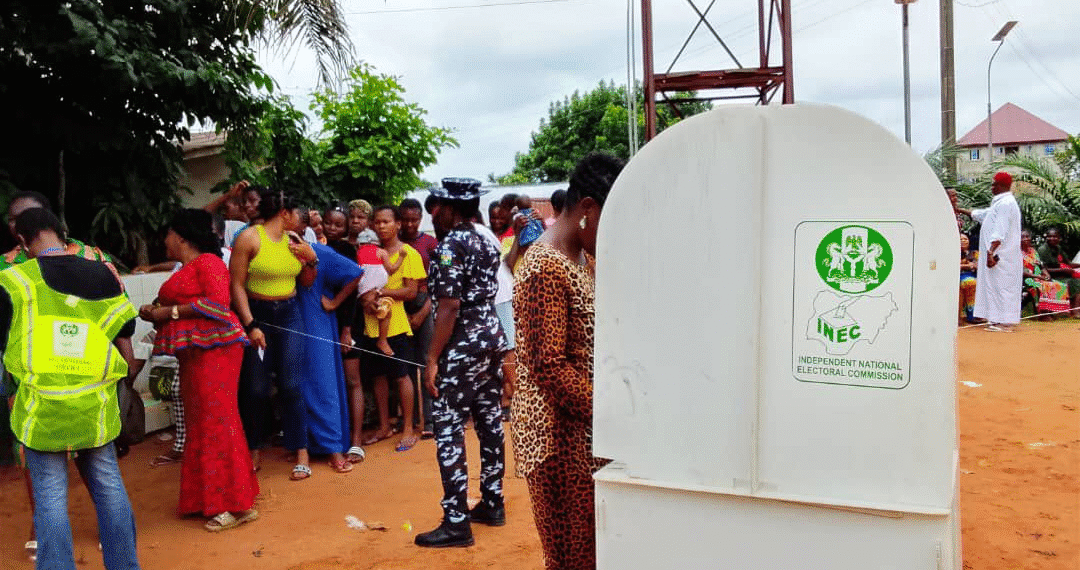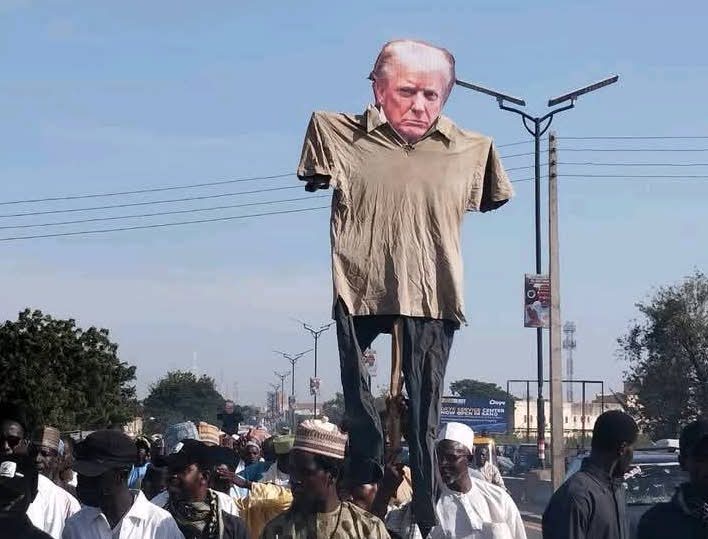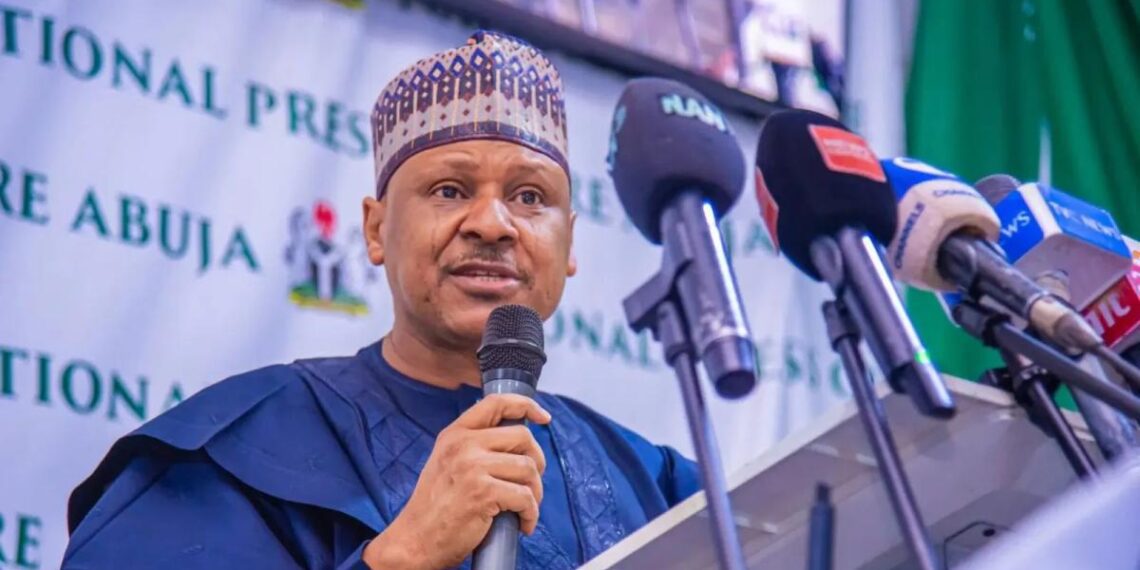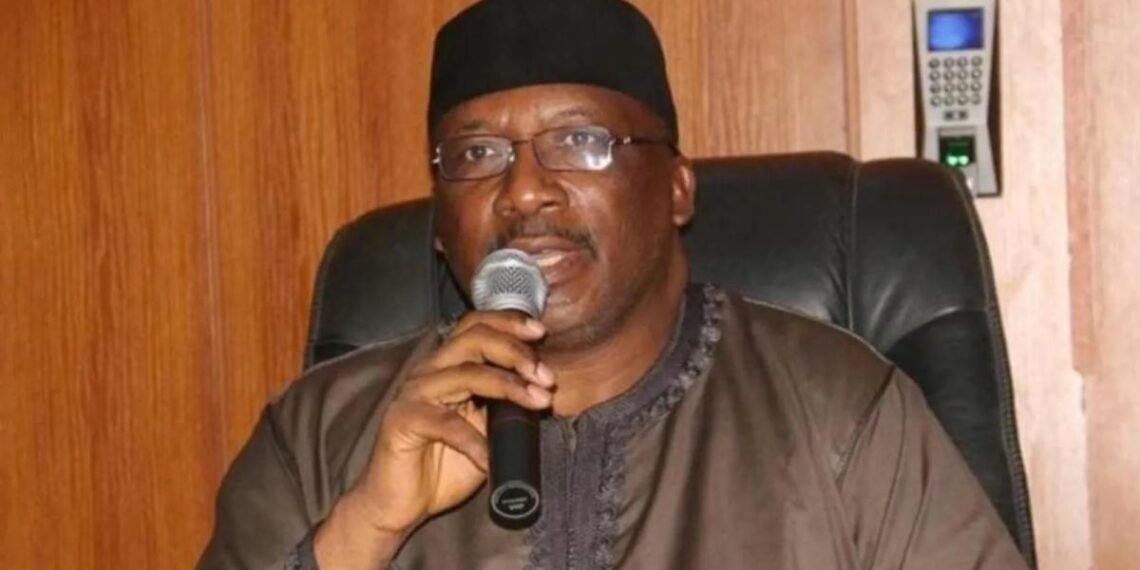The Supreme Council for Shari’ah in Nigeria (SCSN) has called on President Bola Ahmed Tinubu to revoke the appointment of the newly inaugurated Independent National Electoral Commission (INEC) Chairman, Prof Joash Ojo Amupitan.
Amupitan reportedly authored a legal opinion featured in a major international report titled “Genocide in Nigeria: The Implications for the International Community.”
In the legal brief, Prof Amupitan allegedly described conflicts in Northern Nigeria as a continuation of the 19th-century Jihad led by Sheikh Uthman bn Fodio, characterising them as “Christian genocide.”
He further called for urgent intervention to stop what he described as “pogrom and attacks against the Christians and minority groups in Nigeria.”
The report surfaced after U.S. President Donald Trump had earlier designated Nigeria as a country of particular concern and threatened possible military intervention, citing violence against Christians and alleged government inaction.
However, the Nigerian government strongly denied claims of religious persecution.
Amupitan’s legal brief a bigoted assertion against Muslims — Shari’ah Council
In a statement issued on Friday, November 7, 2025, the Shari’ah Council described Amupitan’s legal brief as “provocative, distorted and bigoted assertions” against Muslims in Northern Nigeria.
The SCSN said it received with “deep disappointment and grave concern” the SaharaReporters investigation alleging that Amupitan’s 2020 legal document characterised Northern violence as “Christian genocide” and linked insecurity in the North to the 19th-century Jihad of Sheikh Uthman bn Fodio.
The Council described such a position as “regrettable and disturbing,” especially from someone “now entrusted with overseeing Nigeria’s democratic integrity.”
“If indeed Prof. Amupitan authored the said document, his submissions are not only unbecoming of a person of learning but dangerously inimical to the unity, peace, and stability of our country,” the statement read.
The Council said Amupitan’s reported claims were “divisive, sectarian, abusive, and factually inaccurate narratives against a majority faith community.”
It further “categorically debunked the falsehood” in his alleged analysis of “Christian genocide,” insisting that the violence in Northern and North-Central Nigeria is multi-dimensional and not a one-sided religious persecution.
“If we strip away the mischievous emotional language and examine the facts objectively, the reality is that the violence in Northern and North-Central Nigeria is complex and multi-dimensional. Both Muslims and Christians have suffered immensely from extremist attacks, banditry, and communal conflicts rooted in accumulated neglect, poverty, and social injustice.”
Citing humanitarian data, the SCSN claimed Muslims have suffered more casualties than any other group in the ongoing crises.
“Credible humanitarian data from independent and international sources reveal that Muslims have suffered more casualties in these conflicts than any other group. This is an incontrovertible reality easily verified by mapping the epicentres of violence from Borno to Zamfara, Katsina, Sokoto, Kebbi, Niger, and Yobe, where over 90 percent of the victims are Muslims.”
The Council condemned what it described as Amupitan’s attempt to link modern insecurity to the historic jihad of Sheikh Uthman bn Fodio, calling it “a malicious distortion of history and a deliberate insult.”
“The Jihad of Sheikh Uthman was not a war of hatred or extermination; it was a spiritual, moral, and social reform movement that restored justice, knowledge, and governance rooted in ethics. These instituted ideals are still admired across the African continent today.”
The SCSN said Amupitan’s record and past writings “call into serious question his ability to conduct free and fair elections in a multi-religious, multi-ethnic nation.”
“Presiding over Nigeria’s electoral system demands the highest standards of neutrality, fairness, and inclusivity. By his own words, Prof. Amupitan has demonstrated a deep-seated prejudice that calls into serious question his ability to conduct free and fair elections.”
The Council therefore urged President Tinubu to “immediately review and reverse” Amupitan’s appointment, asserting that “the integrity of Nigeria’s electoral process cannot be entrusted to someone whose record reveals open hostility toward one of the country’s largest faith communities.”
The statement also appealed for calm among Nigerians across all faiths, urging unity against national challenges.
“We urge all Nigerians, Muslims and Christians alike, to reject narratives that seek to pit one faith against another. Our common enemies are injustice, corruption, poverty, and insecurity.”
The Supreme Council for Shari’ah in Nigeria concluded by reaffirming its commitment to peace, unity, and the pursuit of truth based on fairness and mutual respect.
On October 8, 2025, President Tinubu swore in Professor Amupitan as the sixth chairman of the Independent National Electoral Commission (INEC).
Amupitan, 58, hails from Ayetoro Gbede in Ijumu Local Government Area of Kogi State. He is a Professor of Law at the University of Jos, where he also studied.
He specialises in Company Law, Evidence, Corporate Governance, and Privatisation Law, and became a Senior Advocate of Nigeria (SAN) in 2014.
